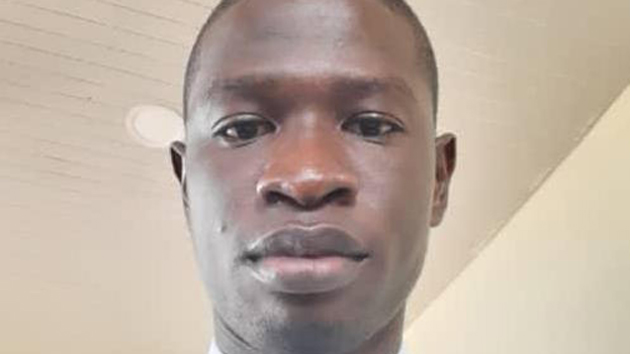
The Insurgency crisis in Nigeria has led to the displacement of many. While some seek protection outside Nigeria, a number of Nigerians displaced have found refuge within the country. One of the places they have found as alternative home is the Internally Displaced Persons’ (IDPs) Camp of the Home for the Needy Foundation. Gbenga Salau, who visited the camp in Uhogua, Edo State, narrated the experiences of the IDPs and camp manager in this report.
Eight years after Bazhigla Haruna left Borno State due to terrorist’s attacks to seek refuge in an Internally Displaced Persons (IDP) Camp in Edo State, he is now a 300-level student of Medicine and Surgery at Edo State University. Haruna was able to achieve the feat due to the support he got from the manager of the IDP camp, Home for the Needy Foundation.
[ad]
Many like Haruna after being displaced due to terrorists’ activities often look for protection, and succor. While some ended up in homes of family members or IDP camps, others roamed the streets of major cities, taking up menial jobs.
Since 2012, Home for the Needy Foundation has been rehabilitating IDPs in line with its mission of providing displaced persons with accommodation, food, clothes, primary healthcare and education. The foundation also helps students to enrol in higher institutions, while those who cannot go beyond secondary education learn a trade. This is aside the emotional, moral and social support, especially for those who have been traumatised.
One of the supervisors at the camp, Pastor Evelyn Omigie, said adequately meeting the needs of the residents in the camp and fulfilling its mission has not been an easy task. This is why pupils live in crowded hostels just as they learn without some basic study materials, including not having adequate furniture and teachers in its school, International Christian Schools, where primary and secondary education is provided.
Of note, Haruna left his village, Chinene, in Borno, a miserable person after his family was sacked from their home by terrorists. According to him, every member of the family went different ways while escaping from the horror terrorists inflicted on them. Haruna ended up in Maiduguri, not knowing exactly where his parents were, but suspected they were headed to Cameroon.
While on the street of Maiduguri, he became more freighted after escaping another attack, following an explosive that detonated not far from him. “I remembered a bomb exploding in front of me and I could not explain how I escaped unhurt.”
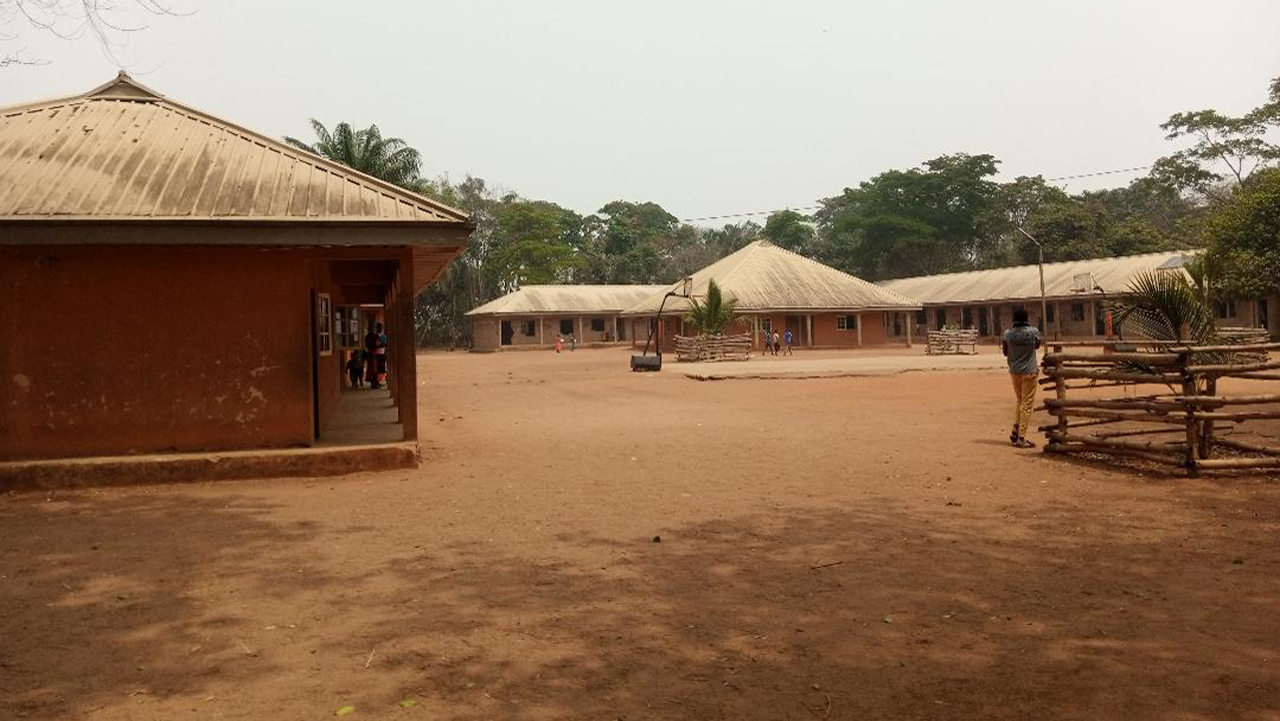
So, when he heard about an IDP camp in Edo State where displaced persons are not only accommodated and rehabilitated but also supported to return to school, he felt that was the place to be. But he could not immediately make the trip down south because he had no resource to fund his journey. Borno and Edo State are about 1272 kilometres apart.
Finally, when he made it down to Benin, he said that the first day at the camp and days after were reassuring to him that life could really be better.
Haruna, who completed his primary education at Chinene Primary School, Chinene Community, Gwoza Local Council, but was forced to abandon his Junior Secondary School education at Universal Basic Education School, Chikide, Gwoza Local Council, said that after the displacement, he had given up on returning to school, considering his school was attacked and shut thereafter.
[ad]
“We did not know when we would return to school. And if I have the opportunity to return to school, my parents were nowhere to be found, which meant funding would be a big challenge. But on arriving at the camp in Edo State, we were rehabilitated, as we had been traumatised from our experiences.
“Sometimes, in the early days at the camp, I will sit lonely, crying, as a result of the traumatic experience I had gone through. But we were counselled and told about people who went through difficult times but came out stronger. Through that, including advice on the need to return to school, I started school again, commencing learning from Senior Secondary School 1 (SS1) in 2015.”
Haruna said that when he got to SSS 2, he wrote the West Africa Examination Council (WAEC) and Joint Admissions Matriculation Board (JAMB) exams, but did not make all his papers.
“But I was encouraged to push on. In SSS 3, I wrote the exams again and passed all my papers, but I was offered a course different from what I applied for. In all, I wrote JAMB four times because of my desire to study Medicine and Surgery.”
According to Haruna, after the third JAMB attempt, he was offered Nursing and Midwifery at Edo State University and he decided to take the offer, though he did not lose sight of studying Medicine and Surgery.
[ad]
No wonder, he enrolled for JAMB again as a first-year student of Nursing and Midwifery. He disclosed that his love for Medicine and Surgery made him abandon Nursing and Midwifery, despite completing one year with a Cumulative Grade Point Average (CGPA) of 5.0/5.0 to re-enroll as a year one student of Medicine and Surgery, where he got the same CGPA 5.0/5.0 after the first year.
Haruna is one of the many IDPs, mostly from northern Nigeria and insurgency-ravaged areas that have passed through the Home for the Needy Foundation’s IDP Camp, a charity-administered camp. According to the managers of the camp, there are at present over 3,000 persons, mostly children and young adults that are residents.
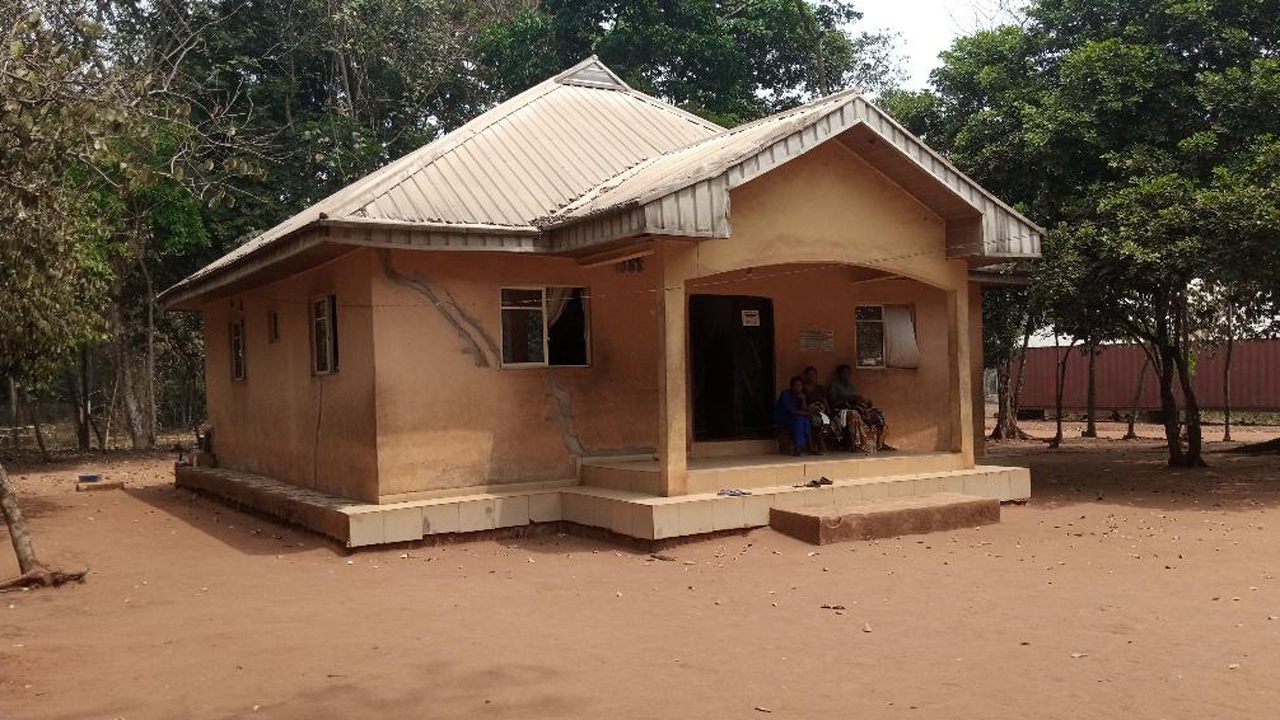
Many in northeast Nigeria have been displaced from their homes since the Boko Haram insurgency began in 2009. According to International Organisation for Migration (IOM), as of October 2022, its Displacement Tracking Matrix (DTM) identified a total of 1,087,875 IDPs in 180,307 households in Nigeria’s north-central and north-west zones. This, it said, signified an IDP increase of 12.2 per cent or 118,118 IDPs compared to March 2022.
The Global Centre for the Responsibility to Protect stated that more than 35,000 people have been killed in northern Nigeria since 2009 when Boko Haram launched its insurgency aimed at overthrowing Nigeria’s secular government and establishing an Islamic state.
In May 2022, Doris Dokua Sasu, in a report published on Statista, said that between 2011 and 2022, Boko Haram was responsible for thousands of deaths in Nigeria, Cameroon, Chad, and Niger. “Nigeria is the country most affected by terrorist group attacks. States in the Northeast register the highest number of deaths. Borno is by far the most threatened state, in that, Boko Haram has caused over 35,000 deaths in this area.
[ad]
Similarly, in October 2022, Chief of Defence Staff (CDS), General Lucky Irabor, disclosed that the Boko Haram insurgency led to the death of 100,000 persons, displaced over two million, and caused damages worth $9 billion (N3.24 trillion). When he completes his university education, Haruna said his next plan is to go back to help his people, because his community lacks trained medical personnel.
“Though I learnt there are equipment and buildings, but the people fit for the job are short in supply. I remember during terrorist attacks; some persons sustained injury and some had fractures, but due to inadequate care, they ended up with deformities and some eventually died. This was one of the reasons that made me toe the path of Medicine and Surgery as a career, to educate the masses within my communities about family planning and change the narrative healthwise,” he said.
Haruna is not the only one that has been positively touched after passing through the IDP camp of the Home for the Needy. Sharing her experience too, Blessing Moses, said that her family ran from Michika, where she completed her secondary school education, to Mubi, but had to flee to Yola, when Boko Haram wrote a letter announcing it plans to attack Mubi.
According to Moses, she ended up in Jos, where she heard about an IDP camp in Edo State, where IDPs are rehabilitated and empowered to return to school. According to her, it was from Jos she moved to the camp, where she has found shelter since 2015.
She disclosed that life before arriving at the camp was filled with trauma, including not having enough to eat. “But when I got to Benin, it was a totally different experience. This was because before arrived the camp, we hardly sleep due to fear of attacks, but when I got to the camp, I slept well for the first time in many years.
“Then in March 2015, one month after I arrived, Pastor Solomon Folorunsho, the founder of the foundation, encouraged me and others on the need to return to school, imploring me specifically to enroll in the state’s college of education for a National Education Certificate (NEC) programme at Esadolor, Edo State, which I complied with and graduated from the Department of Biochemistry in 2017.
“My initial plan was to study nursing, but after completing the NEC programme and mooted the idea of still studying for a degree in Nursing, Pastor Solomon encouraged me to push ahead. So, I wrote JAMB and got admitted into Edo State University. I have written my professional examination, passed, and I am now a registered nurse.
“The foundation has done so much to support me in every aspect of life including spiritual. I have been helped. My dream of becoming a nurse would not have been possible without this foundation. I have lost hope of going back to school as a result of the insurgency that displaced us from our community, but the foundation has helped me, not only to regain myself, mentally but also helped me to achieve my dream of becoming a registered nurse.”
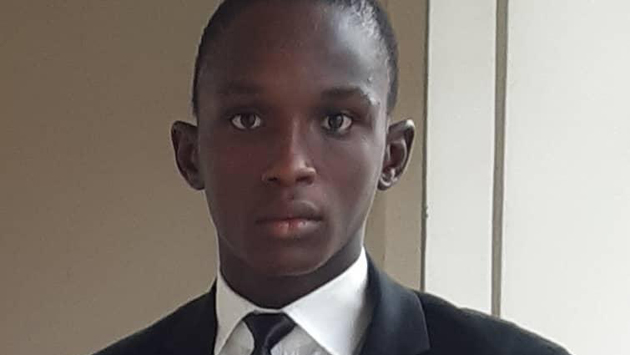
Nathan Ibrahim has been in the camp for over eight years now. He said that his journey to the camp started when his family was displaced from their home. While his parents fled towards Cameroon, he ended up at his uncle’s place in Nassarawa State.
“It was in Nasarawa that I heard about a place where support is given to orphans and IDPs in Edo State. I came to the camp for refuge, so I was given shelter, and thereafter advised not to give up on life, as there is hope for a better future, notwithstanding what has happened to me.
“I was encouraged and given the opportunity to return to school as a Junior Secondary School (JSS) 3 student. I wrote WAEC in SSS 3, passed, and then wrote JAMB. I was constantly motivated and encouraged. Today, I am a final year student of Law. I want to appreciate the founder of the foundation because if he had not opened the door for me to come in, I will not be where I am today. “And if he had not been of help, I will not be able to afford to return to school to study Law and my dream of becoming a lawyer would have been truncated.”
With peace returning to some communities in insurgency-ravaged areas, some of the IDP camps were closed. For instance, from May 2021 to August 2022, Borno State government closed eight camps in the state capital, Maiduguri. But the Hope for the Needy Foundation is not planning to close its camp yet, because it still has a number of IDPs to cater for educationally, who are receiving primary and secondary education.
[ad]
One of them is Abigail Emmanuel, an SS 1 student at the camp, who is very excited about how the education provided in the camp has positively impacted her life.
“I started from kindergarten, but today I am in SS 1, and I hope to be a lawyer. I have been here for about a decade now. Before I got here, I did not pay attention to my spiritual life and educationally, I was backward. I could not speak English or even write my name. In Nursery, my teacher then would hold my hand to write words. Gradually, I became better. And I was motivated and encouraged to be serious with my studies.
“The foundation has been of huge help to me educationally and spiritually. I want to study Law to become a good lawyer to defend my state, and country as well as help others in need because there are many children still passing through what I went through.”
Yakubu Haruna, 18, who completed his secondary school education in the camp, recently, has been admitted to student Law at Edo State University.
“I got here in 2016 and after the rehabilitation process; I was enrolled into primary 5. We were encouraged not to allow the negative things we had experienced to keep us down. So, I became serious with my studies, completed my secondary school education, wrote WAEC and JAMB and I passed. I have been admitted to study Law, which is my dream.”
Haruna said he has gained a lot from the foundation and optimistic about completing his university degree through the support for the foundation by well-meaning Nigerians and organisations. “Reason I am appealing to the government, organisations, including charity groups and wealthy Nigerians to support the foundation and I to be able to complete my law programme.”
Also, Ibrahim called on philanthropies that could support people like him in need through the foundation to do so. “Our story of successes will not be complete without referring to the support we got. If not for the support I got, today, I could be an irresponsible person, fomenting trouble and a threat to society. But now, I am thinking of how to contribute to the development of society.”
On the camp are dormitories for male, female, a healthcare centre, a primary and secondary school, sport centre, a church auditorium, among other facilities.
Providing more insight about the centre, Omigie, disclosed that the foundation set up the camp primarily to cater for the needy and orphans. According to her, the camp is being sustained principally through donations and charity from individuals, governments and organisations.
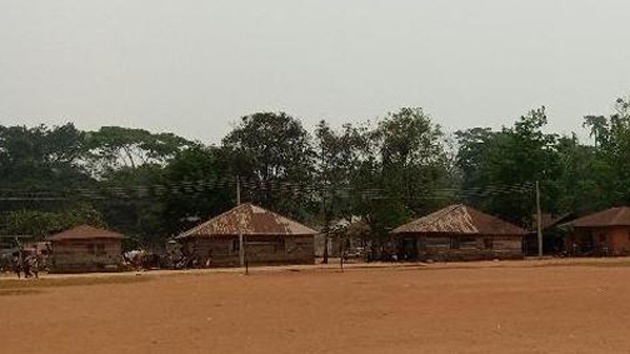 She disclosed that from late 2012, as a result of insurgency in the northern part of Nigeria, the foundation opened its doors to people displaced by the Boko Haram insurgence.
She disclosed that from late 2012, as a result of insurgency in the northern part of Nigeria, the foundation opened its doors to people displaced by the Boko Haram insurgence.
“So, that was how it became an IDP centre. We now have more than 3,000 IDPs, aside from the regular orphans, and widows. When the IDPs came in, they were highly traumatised because many saw their parents beheaded, and some of the widows saw their husbands killed.
“With counselling, as well as showing them real love, through caring, the word of God, and prayers, they were rehabilitated. Presently, between 90 to 95 per cent have come out of their traumatic experiences. We encouraged them to go back to school. Most of them could not speak English when they arrived, but gradually they began to speak English and so you will find some of them studying English in the university. We told them that they could make it by reading, without malpractice. Thank God for the founder and vision bearer of this place, Pastor Solomon Folorunsho, who did a lot of encouragement and this stimulated them into reading and studying adequately.
“Today, many of them are in the universities. We have about forty of them studying law and different professional courses in universities across the nation. We have so many that have gained admission and waiting to resume studies. And that is why we are appealing to Nigerians, governments at all levels, charity organisations, and everyone that loves humanity to come to the aid of these children. We need scholarships for them to achieve their academic and lifelong goals.”
[ad]
According to her, feeding the over 3,000 people in the camp has not been an easy task for the managers of the camp. “So, we need all the support. We have the challenge of sanitation. We need bigger soak-away pits, more toilets, and funds to evacuate the pits that are filled so that there will not be an outbreak of epidemic,” she said.
She stated that whatever is given to the foundation is judiciously spent because the managers are very transparent, as residents of the camp are usually informed about what comes in through donations and charity.
Though many of the children who have passed through the camp’s primary and secondary schools are doing excellently well in the different higher institutions they have gone through or are at present, it was observed that these IDPs, nonetheless got educated under conditions that were not very conducive.
This is apart from the fact that they lived in crowded dormitories that could be made more livable with funds. And Omigie buttressed this when she said that some of the pupils sit on the floor when in classes because of lack of desks and chairs.
“They do not have writing materials and textbooks since COVID-19. Some of our teachers had resigned because we had arrears of unpaid salaries. Our university students had to come in to teach these pupils along with the few teachers that agreed to stay with us. We need support in everything that is good for humanity.”
She, however, revealed that some of the challenges the camp is grappling with in the area of personnel in its school and health centre are being tackled through former students, who are in higher institutions and those who have graduated. She said they volunteer their time and knowledge to teach and provide health services when not in school or waiting for employment.
This story was produced with the support of Nigeria Health Watch through the Solutions Journalism Network, a non-profit organisation dedicated to rigorous and compelling reporting.
[ad]


